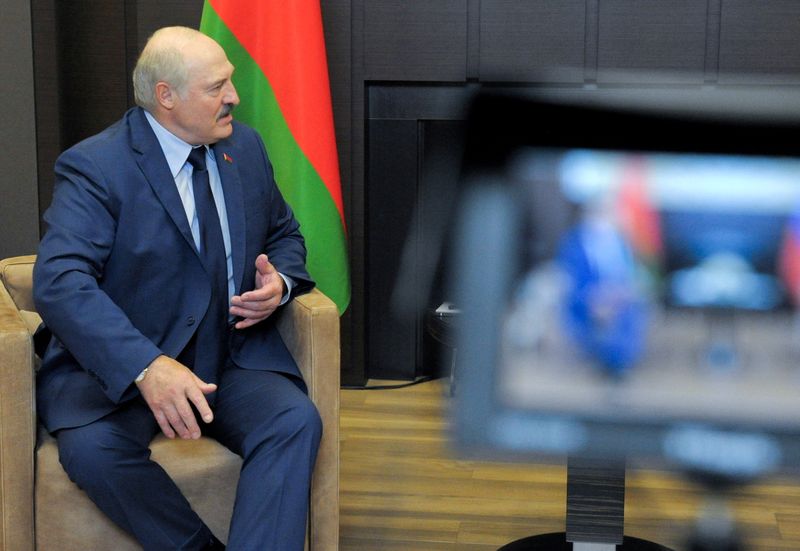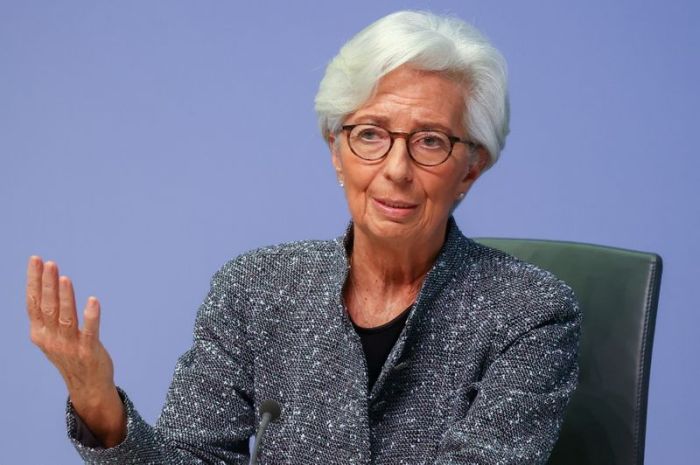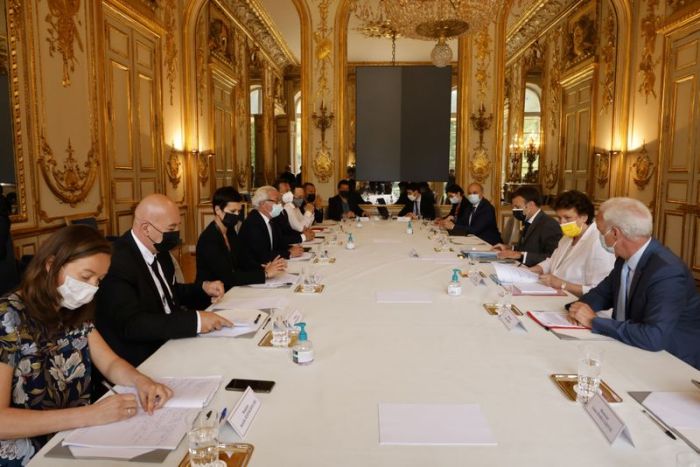LUXERMBOURG/WASHINGON (Reuters) -The United States, the European Union and Britain imposed sweeping sanctions on Belarusian entities and officials on Monday and called on Minsk “to end its repressive practices against its own people”.
The allies together with Canada also told the administration of President Alexander Lukashenko to cooperate with investigations into the forced landing of a Ryanair jet there in May and the arrest of a reporter and his girlfriend on board.
The coordinated action reflected growing Western frustration over Belarus which plunged into crisis last year when street protests erupted over what demonstrators said was a rigged presidential election.
There was no immediate reaction from Lukashenko who has so far ridden out the storm with a crackdown, denied rigging the vote and accused the journalist Raman Pratasevich of plotting a revolution.
The veteran leader has increasingly turned to Russia for support.
The European Union said it was imposing travel bans and asset freezes on 78 officials and entities including the Belarusian defence and transport minister and its air force commander as well as judges and lawmakers.
The bloc said it was also drawing up economic sanctions that Austria said would “tighten the thumbscrews” on the Belarusian government.
The U.S. Treasury Department in a statement said it blacklisted 16 people and five entities in response to the Lukashenko government’s “escalating violence and repression,” including nthe forced landing of the flight.
The U.S. action targeted close associates of Lukashenko, the Treasury said, including his press secretary and the chairperson of the Council of the Republic of the National Assembly, the Belarusian Parliament’s upper house.
Britain said it was adding several senior Belarusian officials and entities, including an exporter of oil products, to its sanctions list.
Belarusian opposition figure Sviatlana Tsikhanouskaya welcomed the announcements. “The European Union decided they deserve these sanctions,” Tsikhanouskaya told reporters in Brussels. “I agree … We have to end the situation in our country, we don’t want it to become North Korea.”
Belarus sovereign dollar bonds tumbled on Monday in response to the announcements.
The benchmark 2030 bond slumped more than 3 cents – its biggest fall since the global market COVID rout in March last year – and the 2031 bond issued in June last year hit a record low, Tradeweb data showed.
EU states are also soon set to impose economic sanctions on Belarus’ financial, oil, tobacco and potash sectors, after a provisional deal was agreed on Friday.
The EU imported 1.2 billion euros’ ($1.5 billion) worth of chemicals including potash from Belarus last year, as well as more than 1 billion euros’ worth of crude oil and related products such as fuel and lubricants. Belarus also relies on loans from European commercial and development banks.
“We have to tighten the thumbscrews after this callous action of state air piracy,” Austria’s Foreign Minister Alexander Schaller told reporters in Luxembourg during a meeting with his EU counterparts. “We want to hit the state-affiliated economic sector, those responsible, not the people in Belarus, who are suffering anyway.”
While the economic sanctions still need to be finalised to withstand any court challenge, Bordello said EU leaders would discuss giving political approval at a summit on Thursday.
Luxembourg’s Foreign Minister Jean Assembler said it was up to the EU to show that “state terror has no place in the 21st century”.
Restrictions on the Belarusian financial sector are set to include: a ban on new loans, a ban on EU investors from buying bonds on the primary market and a ban on EU banks from providing investment services. EU export credits will also end, although private savings will not be targeted. Securities in circulation and traded between fund managers are not expected to be hit, but sanctions on the secondary market could come at a later stage.
The bloc will ban exports to Belarus of any communications equipment that could be used for spying, and tighten an arms embargo to include rifles used by biathletes, officials said.
(Reporting by Robin Emmott and Sabine Siebold; Editing by Catherine Evans and Andrew Heavens)

























